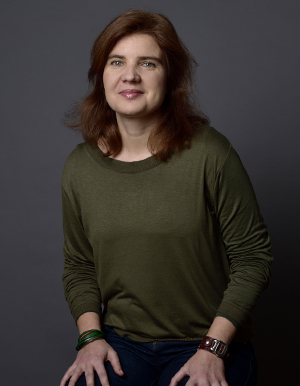Ana Sofia Coroadinha Lab
Animal Cell Technology Unit

 |
The primary research activity is centered in development and improvement of virus biopharmaceuticals, recombinant virus for vaccines or gene therapy, and the animal cell lines for their manufacturing. |
|
Ana Sofia Coroadinha Phone (+351) 214469457 | Extension 1457 |
|
Research Interests
As befits a technological area, the Cell Line Development and Molecular Biotechnology is integrated in the Animal Cell Technology Unit where a number of knowledge competences have to be appropriately balanced (http://tca.itqb.unl.pt).
The principal area of scientific research activity is applied virology with the aim to provide therapeutic solutions for healthcare through the use of recombinant virus. Our research links virology and technology focused on the areas of gene therapy and vaccines.
The work links molecular biology, virology and animal cell culture. It involves the design of expression genetic cassettes, requiring the use of molecular biology and virology tools, the establishment of new cell lines by clone selection and screening, the use of cell culture, and also biochemistry, physiology and virology among other analytical techniques to characterize and study the cells and virus. Additionally, we are interested in the genetic enhancement of the cells or the virus per se, in order to improve either the product therapeutic efficacy (specificity, tropism, transduction efficiency, immune response) or the cell robustness (improved growth, survivability, metabolism, productivity, etc.).
In this context the laboratory is involved in several projects as the following ones which the objectives are: i) development of integration and recombination tools (e.g. recombinase cassette exchange systems) or screening methodologies for fast establishment of high producer cell lines; ii) establishment of robust mammalian cell lines and improving viral vectors therapeutic efficacy to be used in gene therapy (e.g. adeno-associated virus, and lentivirus) iii) development of molecular biology tools to assist virology and drug discovery (e.g. cell based systems to detect and quantify label free viruses) iv) development or modification of mammalian cell lines for virus or vaccine amplification (e.g. influenza). All projects are hold in collaboration either with internal or foreign research laboratories.
Group Members
- Ana Filipa Rodrigues, PhD, Post-Doc
- Miguel Guerreiro, PhD, Post-Doc
-
Ana Sofia Fernandes, PhD, Pos-Doc
-
Ana Sofia Oliveira, PhD student
-
Tiago Vaz, PhD student
-
Ana Isabel Almeida, MSc Research student
-
Ana Catarina Silva, MSc, Research student
-
Elisa Cabral, MSc, Research student
-
Maria Mega Fonseca, MSc, Research student
-
Mariana Ferreira, MSc, Research student
-
Rodrigo Nogueira, MSc, Research student
Selected Publications
-
Guerreiro MR, Freitas DF, Alves PM, Coroadinha AS* (2019) ‘Detection and Quantification of Label-Free Infectious Adenovirus Using a Switch-On Cell-Based Fluorescent Biosensor’. ACS Sens. 4(6):1654-1661.
-
Tomás HA, Mestre DA, Rodrigues AF, Guerreiro MR, Carrondo MJT, Coroadinha AS (2019) ‘Improved GaLV-TR Glycoproteins to Pseudotype Lentiviral Vectors: Impact of Viral Protease Activity in the Production of LV Pseudotypes’. Mol Ther Methods Clin. 15:1-8.
-
Soares HR, Ferreira-Fernandes M, Almeida AI, Marchel M, Alves PM, Coroadinha AS. (2019) ‘Enhancing Hepatitis C virus pseudoparticles infectivity through p7NS2 cellular expression’. J Virol Methods. 274:113714.
ACT Unit Website
For further information please visit the ACT webpage
Cell Line Development and Molecular Biotechnology (PT)
A principal área de actividade científica da investigação do laboratório de Desenvolvimento de Linhas Celulares e Biotecnologia Molecular é virologia aplicada com o objectivo de gerar soluções terapéuticas através do uso de vírus recombinantes. A nossa investigação conjuga virologia e tecnologia com foco nas áreas de terapia génica e vacinas. O trabalho usa metodologias da biologia molecular, virologia e cultura de células animais. Como tal, envolve o design dos vectores de expressão genética, requerendo a utilização de metodologias de biologia molecular e virologia, o estabelecimento de novas linhas celulares por selecção e caracterização de clones, o que requer ainda metodologias de cultura celular, virologia e análise bioquímica, fisiológica entre outras.
Adicionalmente, estamos interessados no melhoramento genético das células ou vírus per se, de modo a melhorar quer a eficácia terapéutica do bioproduto (especificidade, tropismo, eficiência de transdução, resposta immunológica) ou a robustez das células (do crescimento, viabilidade, metabolismo, produtividade celular, etc.)









